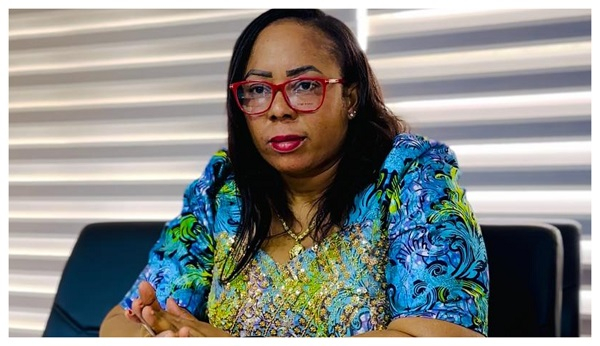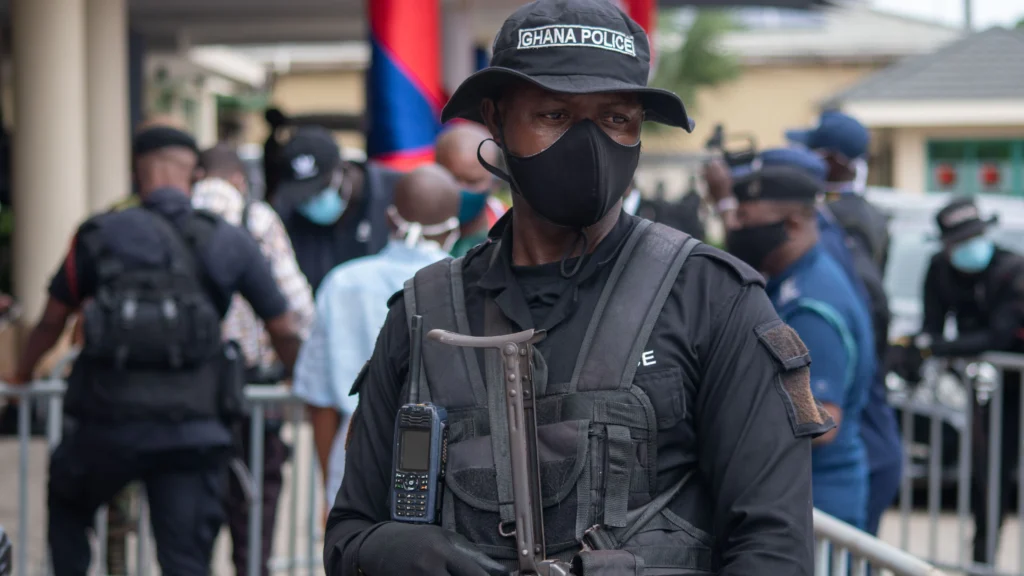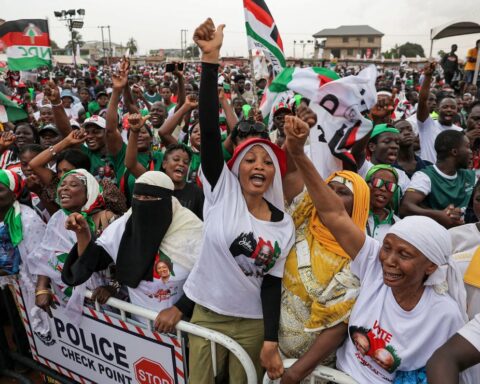The June 11 Ablekuma North voting rerun, which involved fewer than 5,000 voters, was a stark reminder that elections in Ghana remain the nexus of the rot in our democracy.
I have had cause to call Ghana’s democracy a sham in the past for a plethora of reasons. Take your pick: extrajudicial killings by police, the armed forces laying siege to citizens, the unlawful arrests of protesters, spending over $50 million on a galamsey pit in the heart of the capital, and so on.
However, the electoral process remains the anathema keeping our democracy from offering any dividends to the people.
This was on full display during the Ablekuma North rerun, which was a violent fiasco reminiscent of notorious by-elections and voter registrations in the past.
Before things got physical, the nasty monetisation of our politics was already on show. I joked that the partisan grassroots in Ablekuma South must have been thanking their stars for an “after extra time” election in their backyard. It would be yet another opportunity to make some extra money.
Unsurprisingly, one of the first narratives from the election grounds, within an hour of polls opening, saw the governing party (NDC) accused of giving money to sections of the electorate.
The Greater Accra Regional Minister, Linda Ocloo, fielded questions on the issue and played the annoying T&T card, arguing that the party needed to cater for the transportation needs of voters.

A simple retort is, why didn’t they hurl money at voters during the general election on December 7, when upwards of 10 million Ghanaians were expected to vote?
It is worth noting that the Ablekuma North presented conditions that mirror the internal election ecosystems of political parties because of the significantly smaller number of voters. These are ecosystems that have allowed the corruption of the election process to thrive.
Smaller numbers mean the partisan actors can throw money at voters instead of ideas. Parties do most elections using a delegate system with an electorate of not more than 500,000, and sometimes fragmented at the constituency level.
This layer of clientelism is very problematic because it means parliamentary seats are basically up for sale. This can be especially damaging in safe seats for parties, where money, not policy, essentially determines who enters Parliament. I digress.
It didn’t take long for the vote-buying claims to be overshadowed. There was an eruption of violence with some NPP members, including a former legislator and current national executive, suffering physical harm. Indeed, the attack on the latter was so distressing that it resembled the first salvos from a lynching.
The real horror in all this was that the police could not have appeared more disinterested even if they tried.
The leadership of the police service has changed following the NDC assuming power, but the ethos remains the same. A zombie force trudging to the whims of the party governing. Winner takes all, including law and order.
The police can be organised and intimidating when they want to be. They can contain and crack down on targeted groups when given the green light.

Just ask people with non-partisan banners over the years; from law students protesting for reforms in legal education to the Occupy Julorbi protesters demanding action on galamsey.
When minded, the police can have a bus on hand ready to round up citizens, as if they started the day with an arrest quota to meet.
In Ablekuma North, it appears the goal was to ghost. Perhaps, the officer deemed most feckless was promised free lunch for a week. Even when the Inspector General of Police came around, he ghosted all accountability and did not address the security situation.
It took about 24 hours for the police to release a statement on the matter. Ocloo doubles as the head of the Greater Accra Regional Security Council but also seems to have dodged the bullet of accountability.
The police conduct at Ablekuma North indicated that once again, the state capture by the political parties is devastating in how absolute it is. Law and order will be defined by the parameters of the NDC.
While conventional understanding of clientelism revolves around the contingent patron-client exchange, I very much favour explorations of the dyadic relationships, nicely outlined in work by Herbert Kitschelt and Steven I. Wilkinson (Patrons, Clients and Policies: Patterns of Democratic Accountability and Political Competition).
For them, benefits directed at groups of individuals, which can be withheld from other groups but not withheld from individuals within the group, can be a form of clientelist exchange. This was the case in Ablekuma North when it came to police protection for a particular partisan colour.
The state capture I lamented earlier reared its head in another vexing way. The number of state agency CEO’s and directors who trooped to the 19-polling station election like they were AU observers was a sight to behold.
I was hearing names of state agencies I had never heard before. The names of the personalities were familiar, though; people who were campaigning and defending the NDC in the public before their victory in the 2024 election.
Despite being given control over critical public agencies, partisan allegiances take priority.
Coming off eight years of abuse of power by the NPP and the Akufo-Addo administration, journalists’ microphones shoved into the partisan appointees of the new government to comment on the violence elicited expected responses.
I would much rather have listened to random constituents on what was happening, given that the election for their representation in Parliament was tainted by an unfair process.
The warnings ahead of the Akwatia by-election could not be clearer. Nonpartisan actors in the constituency must mobilise and remind us who elections are actually about, and the media needs to give them the space to do so.
Most of the government actors were unwilling to condemn the political violence. Some of them even justified it. Sam George, now a minister, brought up Ayawaso West Wuogon, where he was notably assaulted by security personnel, and rightly reminded that he never got justice, though within the confines of the zero-sum partisan dichotomy.
Ayawaso West Wuogon, Ablekuma North, and several other instances of election violence that have littered the past three decades form the same pile of litter regardless of which partisan colour was at fault.
What we need now is a garbage man who ensures this pile of litter is cleaned up. Unfortunately, we keep indulging leaders and political actors who are only adding to the pile, which reeks to the heavens of injustice and corruption.
A word that disturbingly kept coming up during the election was Akwatia. There is going to be a by-election there in a bit owing to the death of its legislator.
Early signals are that Akwatia, already a scene of violent partisan confrontations in the past, could see way worse violence than in Ablekuma North.
There have been blatant threats, with prominent NPP communicators suggesting they will resort to private protection given that the police are compromised against them.
The warnings ahead of the Akwatia by-election could not be clearer. Nonpartisan actors in the constituency must mobilise and remind us who elections are actually about, and the media needs to give them the space to do so.
We also need to squeeze more accountability out of the police, no matter how difficult it may be. They are the ones with the security mandate, and regardless of the partisan pressure, we must insist they prioritise the public interest when they put on their uniforms.
Ablekuma North was the continuation of our election nightmare, but Akwatia presents us with a good opportunity to prove it’s a nightmare we can wake up and move on from.


